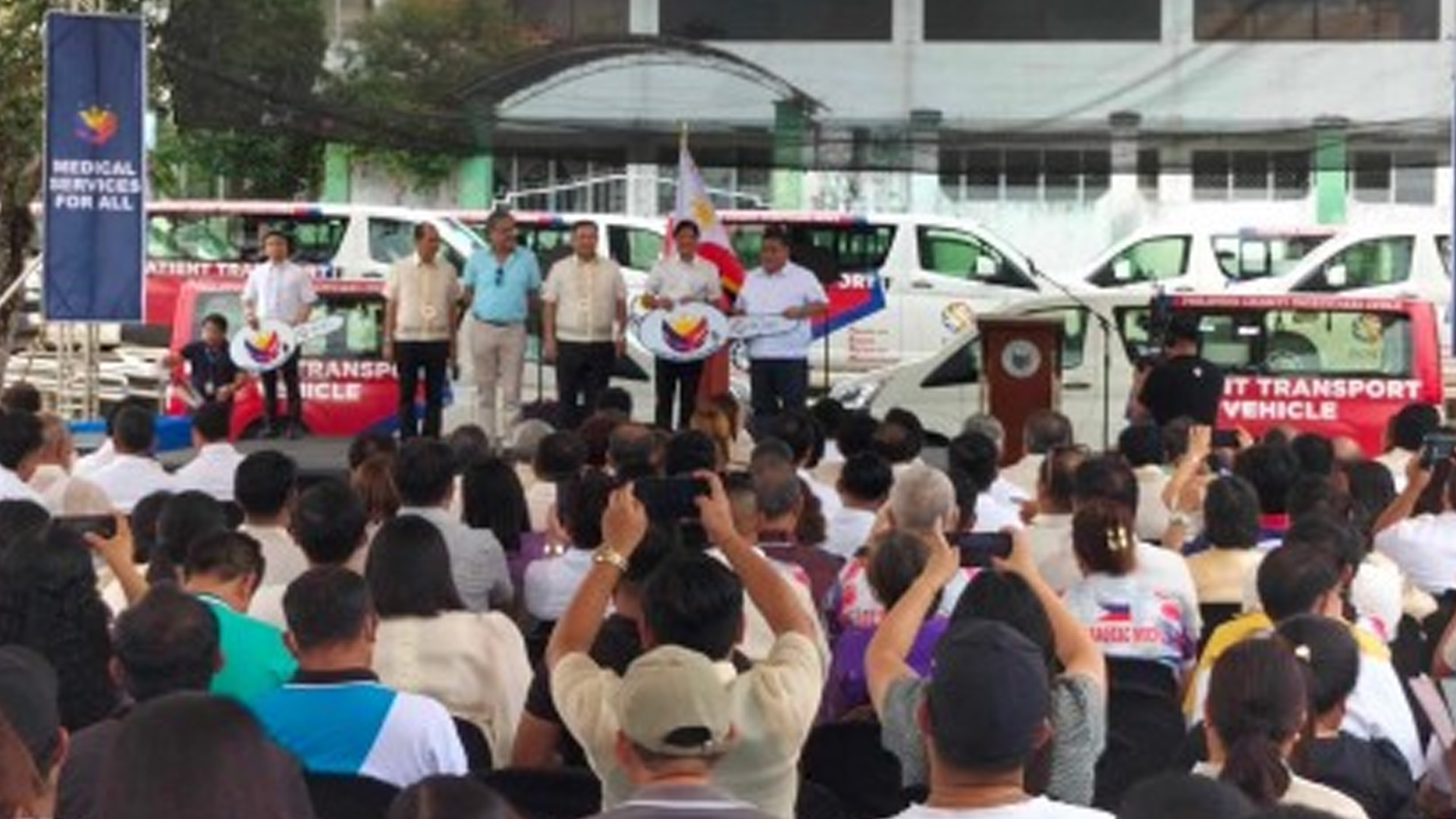Fifty-one local government units (LGUs) from Western Visayas received patient transport vehicles (PTVs) from President Ferdinand R. Marcos Jr. during a turnover ceremony at the Plaza Paloma in Passi City, Iloilo, on Thursday.
The PTVs under the Medical Transport Vehicle Donation Program (MTVDP) of the Philippine Charity Sweepstakes (PCSO) would enhance healthcare access in the region.
Four LGUs in Aklan, seven from Antique, three from Guimaras, 18 from Iloilo and 19 from Negros Occidential got their respective PTVs.
“These state-of-the-art and reliable PTVs will provide timely and safe transportation to and from medical facilities. This PTV is equipped with a stretcher, oxygen, blood pressure monitor among other equipment. We’re making sure that no Filipino is left stranded without help,” Marcos said in his message.
The President also challenged recipient LGUs to ensure that the vehicles are not left idle on their parking lot but “out saving lives and reaching farthest communities and delivering what was promised swift and reliable healthcare for Filipinos.”
He also announced that the Office of the President has approved a budget of PHP2 billion this year for the acquisition of 1,000 more PTVs to cover all cities and municipalities in the country.
“That is part of the bigger picture where we are upscaling our preparedness and response to calamities and disasters at both the local and the national level,” he said.
He also committed that one day, every LGU in the country will have operational PTVs and medical responders on standby.
PCSO General Manager Melquiades Robles, in his message, said that nationwide, PCSO has already distributed 467 PTVs under the Marcos administration.
“This is important because we have to equip the LGUs in order for them to carry out their job of administering and giving health care to our people, especially those who have no means of moving going out of the hospital, even coming home from the hospital. We are doing this all over the country because this is Bagong Pilipinas,” he said.
He also announced that they looked forward to every LGU in the country having two PTVs before the term of President Marcos ended.
Meanwhile, recipient LGUs were grateful for being part of the initial distribution of the MTVDP in the region.
“As you know time is crucial when it comes to attending to patients. The availability of the patient transport vehicle has enhanced the capability of our local government units to respond to calls for medical assistance, especially when transporting their patients to district and tertiary hospitals,” Iloilo Provincial Administrator Raul Banias, also a medical doctor by profession, said in an interview.
He said the provincial government is willing to assist should the LGUs decide to upgrade their PTVs to become licensed ambulance, since the vehicles are of excellent quality and from a reliable brand.
“These vehicles are not merely modes of transportation. They are lifelines for many in our communities. They will ensure that essential medical services reach those in need, particularly in our more remote areas,” he added.
Mayor Cresente Chavez from the municipality of Jordan in Guimaras said they are thankful they were not forgotten.
He said Guimaras is an island province and the mode of transportation, especially four-wheel vehicles, is limited.
The new PTV will augment their existing three rescue ambulances and two others that are stationed at their rural health unit.
Sebaste, Antique Mayor January Padpad said two of their three ambulances are unserviceable at the moment.
The new PTV is timely especially this time when there are calamities and they need to transport patients to the nearest health facility in San Jose de Buenavista or Kalibo, Aklan.
Mayor Jose Jeffrey Lomugdang of Culasi town, also in Antique, said a transport vehicle is necessary when in need of immediate action in case of emergency.
“We are in the north so a referral system is needed. If there is no available transportation, there will be problems in the delivery of basic services,” he said in an interview. (PNA)





















